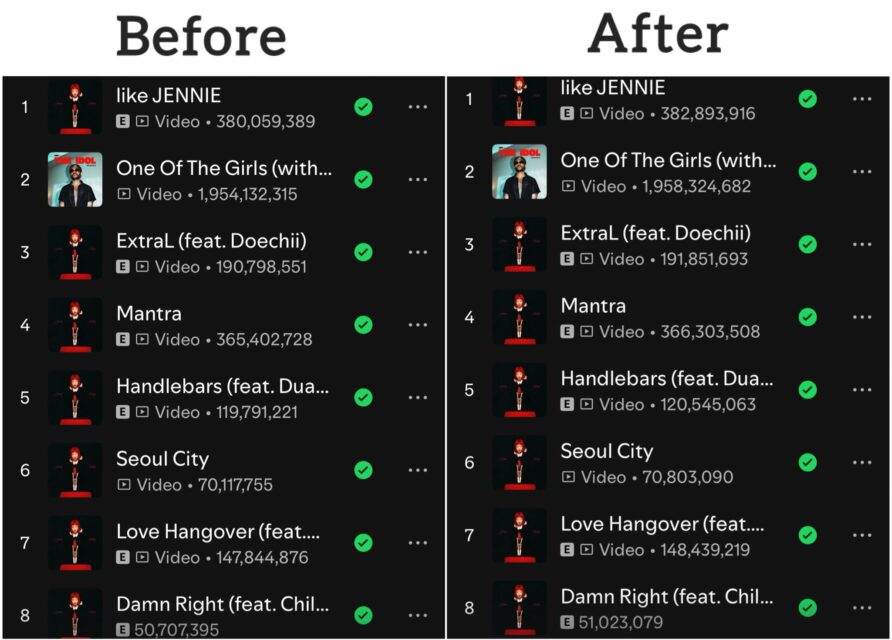There are several theories as to why.

![]()
Koreaboo
17 minutes ago
One measure of popularity lies with streaming results, resulting in fans monitoring the streams their favorite artists receive. Of the various platforms, Spotify is arguably the most popular internationally, showing the total number of streams a track, album, or artist has received.
 | Spotify
| SpotifyWith so many numbers to analyze, Spotify has taken preventative measures to prevent streaming inflation. The platform regularly conducts mass removals of streams detected as “fraud” or “artificial,” as defined by its website.
An artificial stream is a stream that doesn’t reflect genuine user listening intent, including any instance of attempting to manipulate Spotify by using automated processes (e.g. bots or scripts).
— Spotify on its stream protection
As a result, many artists will suffer from having their streams removed because the system detects listens as fraud. Lately, the platform has taken to removing numbers near the beginning of each month, which has continued in July 2025.
In July’s sweep, many K-Pop artists suffered a drop in streams, with popular idols losing the highest totals. BLACKPINK’s Rosé and Jennie reportedly lost around 2 million streams on rosé and “Like Jennie,” respectively.
 | Spotify
| SpotifySeveral members of BTS also lost streams on recent releases.
Jungkook, V, and Jin also reportedly lost varying amounts of streams: Jin’s “Don’t Say You Love Me” allegedly had over 15 million deleted; Jungkook lost millions of streams on tracks like “Seven” and “3D,” while V “Winter Ahead” saw a drop of around 13 million globally.
 | Spotify
| SpotifyHowever, Jimin has seen the most significant loss amongst K-Pop idols, losing over 15 million on “Who.” Since the track was released, Spotify has deleted over 200 million streams of “Who.”
Of course, Jimin’s “Who” continues to break various records, despite the losses seen over time.



















 English (US) ·
English (US) ·